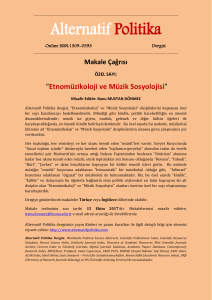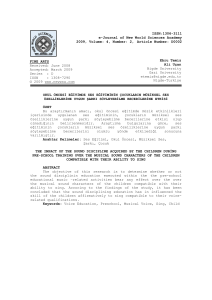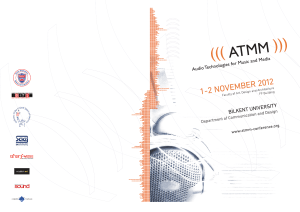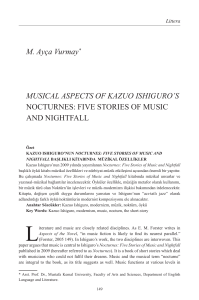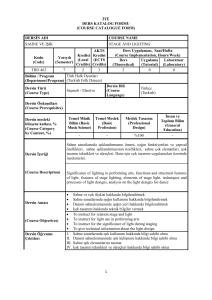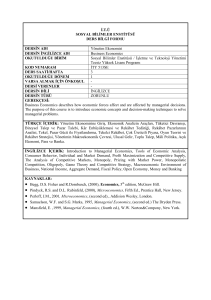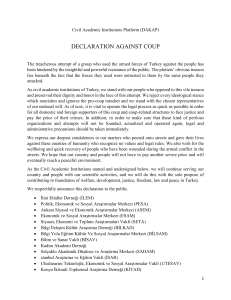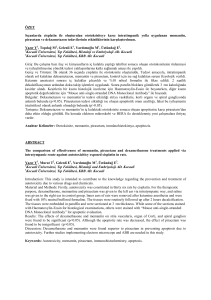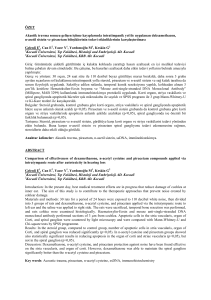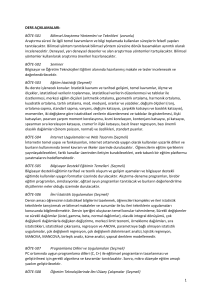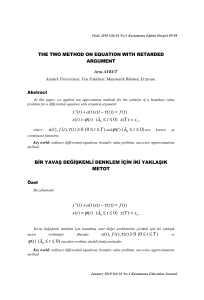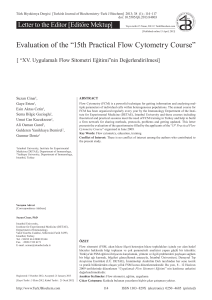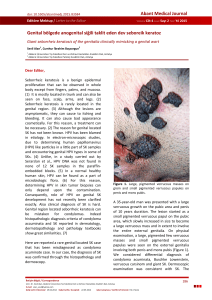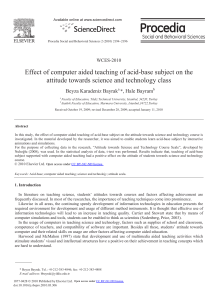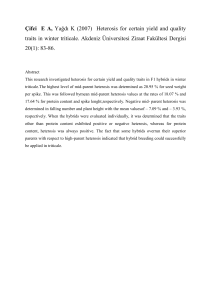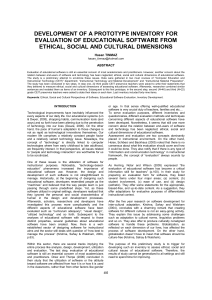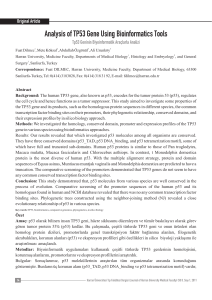müzik öğretmeni adaylarının bireysel ses eğitimi dersine yönelik
advertisement
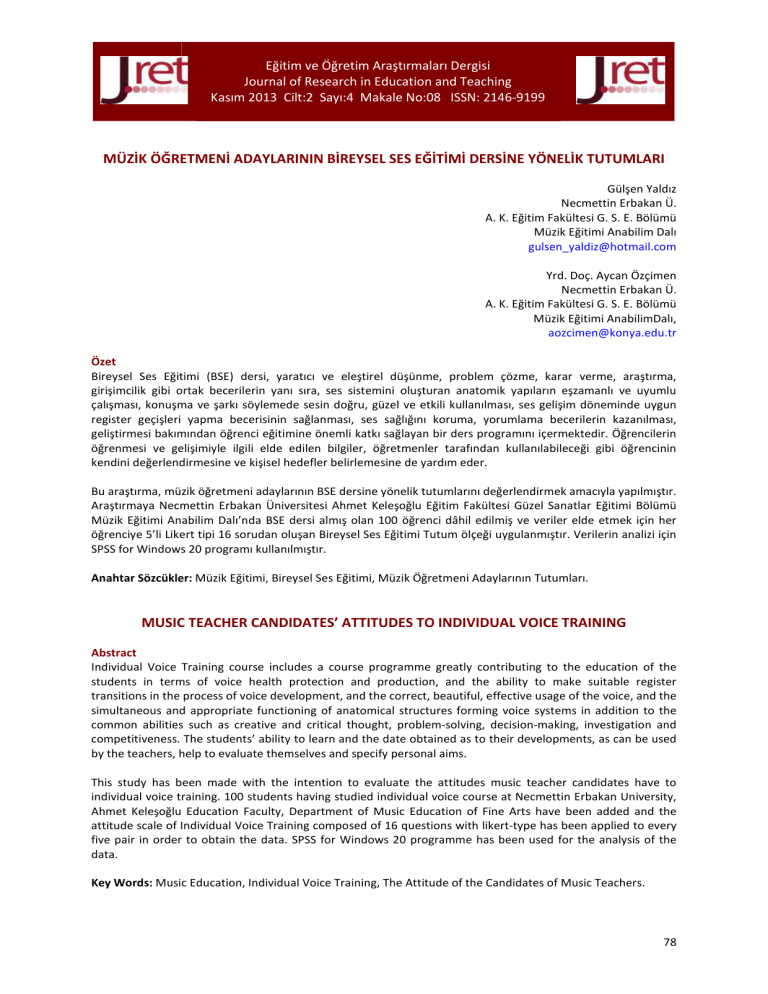
Eğitim ve Öğretim Araştırmaları Dergisi Journal of Research in Education and Teaching Kasım 2013 Cilt:2 Sayı:4 Makale No:08 ISSN: 2146-9199 MÜZİK ÖĞRETMENİ ADAYLARININ BİREYSEL SES EĞİTİMİ DERSİNE YÖNELİK TUTUMLARI Gülşen Yaldız Necmettin Erbakan Ü. A. K. Eğitim Fakültesi G. S. E. Bölümü Müzik Eğitimi Anabilim Dalı gulsen_yaldiz@hotmail.com Yrd. Doç. Aycan Özçimen Necmettin Erbakan Ü. A. K. Eğitim Fakültesi G. S. E. Bölümü Müzik Eğitimi AnabilimDalı, aozcimen@konya.edu.tr Özet Bireysel Ses Eğitimi (BSE) dersi, yaratıcı ve eleştirel düşünme, problem çözme, karar verme, araştırma, girişimcilik gibi ortak becerilerin yanı sıra, ses sistemini oluşturan anatomik yapıların eşzamanlı ve uyumlu çalışması, konuşma ve şarkı söylemede sesin doğru, güzel ve etkili kullanılması, ses gelişim döneminde uygun register geçişleri yapma becerisinin sağlanması, ses sağlığını koruma, yorumlama becerilerin kazanılması, geliştirmesi bakımından öğrenci eğitimine önemli katkı sağlayan bir ders programını içermektedir. Öğrencilerin öğrenmesi ve gelişimiyle ilgili elde edilen bilgiler, öğretmenler tarafından kullanılabileceği gibi öğrencinin kendini değerlendirmesine ve kişisel hedefler belirlemesine de yardım eder. Bu araştırma, müzik öğretmeni adaylarının BSE dersine yönelik tutumlarını değerlendirmek amacıyla yapılmıştır. Araştırmaya Necmettin Erbakan Üniversitesi Ahmet Keleşoğlu Eğitim Fakültesi Güzel Sanatlar Eğitimi Bölümü Müzik Eğitimi Anabilim Dalı’nda BSE dersi almış olan 100 öğrenci dâhil edilmiş ve veriler elde etmek için her öğrenciye 5’li Likert tipi 16 sorudan oluşan Bireysel Ses Eğitimi Tutum ölçeği uygulanmıştır. Verilerin analizi için SPSS for Windows 20 programı kullanılmıştır. Anahtar Sözcükler: Müzik Eğitimi, Bireysel Ses Eğitimi, Müzik Öğretmeni Adaylarının Tutumları. MUSIC TEACHER CANDIDATES’ ATTITUDES TO INDIVIDUAL VOICE TRAINING Abstract Individual Voice Training course includes a course programme greatly contributing to the education of the students in terms of voice health protection and production, and the ability to make suitable register transitions in the process of voice development, and the correct, beautiful, effective usage of the voice, and the simultaneous and appropriate functioning of anatomical structures forming voice systems in addition to the common abilities such as creative and critical thought, problem-solving, decision-making, investigation and competitiveness. The students’ ability to learn and the date obtained as to their developments, as can be used by the teachers, help to evaluate themselves and specify personal aims. This study has been made with the intention to evaluate the attitudes music teacher candidates have to individual voice training. 100 students having studied individual voice course at Necmettin Erbakan University, Ahmet Keleşoğlu Education Faculty, Department of Music Education of Fine Arts have been added and the attitude scale of Individual Voice Training composed of 16 questions with likert-type has been applied to every five pair in order to obtain the data. SPSS for Windows 20 programme has been used for the analysis of the data. Key Words: Music Education, Individual Voice Training, The Attitude of the Candidates of Music Teachers. 78
